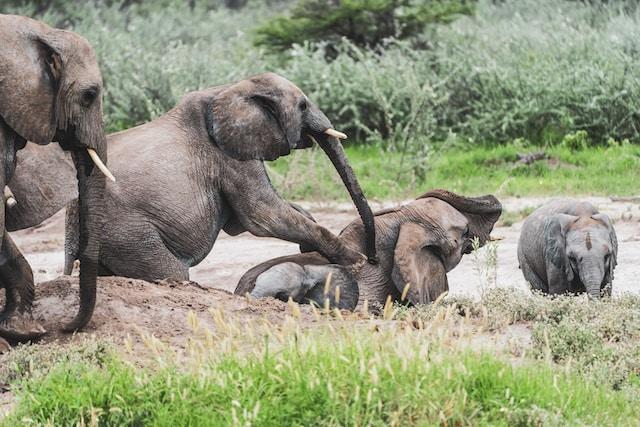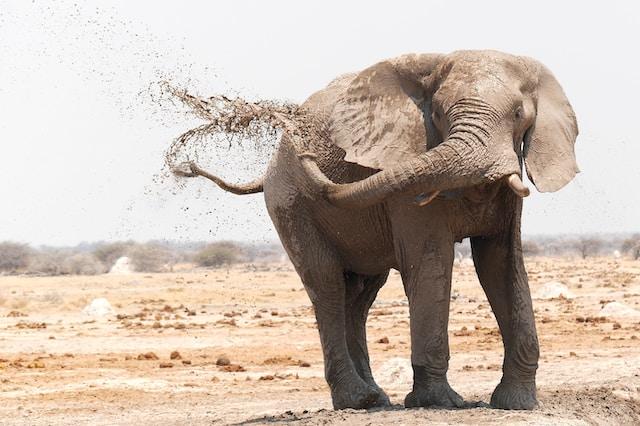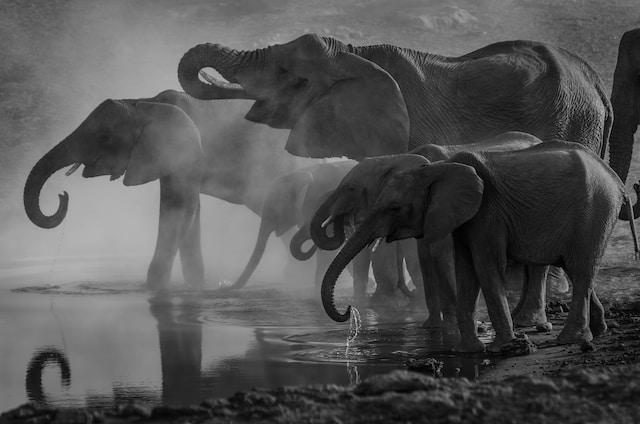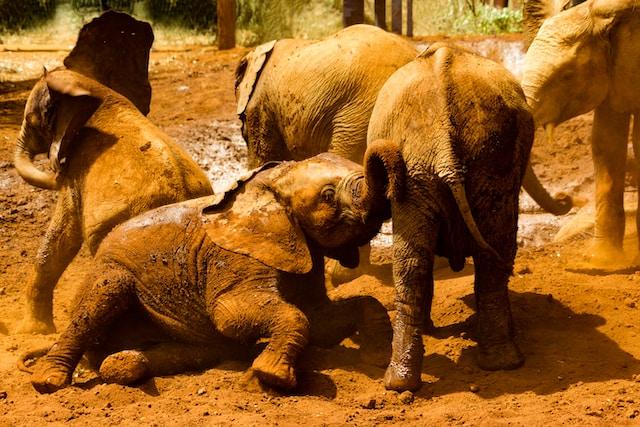Elephants are well known for their social behavior, their intelligence, and their impressive physical strength. However, many people may not be aware of the playful side of elephants. Elephants are actually very playful animals and engage in a wide range of play behaviors, both in the wild and in captivity. In this article, we will explore the different types of play behaviors that elephants exhibit, and the role of play in their lives.
Types of Play Behaviors in Elephants
Elephants engage in a wide variety of play behaviors, including:
Social Play: Elephants are social animals and engage in a lot of play behaviors with each other. This includes playful pushing, shoving, and wrestling. Social play is an important way for elephants to strengthen their bonds with each other, and to learn important social skills.
Object Play: Elephants also engage in object play, where they play with various objects in their environment. This could include playing with sticks, branches, or even their own tusks. Object play is important for elephants to develop their physical skills and to explore their environment.
Water Play: Elephants love to play in water, whether it’s in natural bodies of water or in man-made pools. They will splash around and submerge themselves in the water, playing with each other or with objects they find in the water.
Playful Chasing: Elephants also engage in playful chasing, where they will run after each other or after other animals in a playful manner. This is an important way for elephants to develop their physical abilities, including their speed and agility.
Playful Vocalizations: Elephants also use vocalizations as part of their play behavior. They will trumpet, growl, and make other playful sounds to communicate with each other and to express their excitement.

The Importance of Play in Elephant Behavior
Play is an important part of elephant behavior, both for their physical and mental well-being. Here are some of the key reasons why play is important for elephants:
Physical Development: Play helps elephants develop their physical abilities, including their strength, agility, and coordination. This is particularly important for young elephants, who need to develop these skills in order to survive in the wild.
Social Development: Play also helps elephants develop their social skills and strengthen their bonds with each other. Through play, elephants learn how to communicate with each other, resolve conflicts, and establish social hierarchies.
Mental Stimulation: Play is also important for elephants’ mental well-being. It provides them with mental stimulation and helps prevent boredom and stress, which can lead to negative behaviors in captivity.
Enrichment: Play provides elephants with environmental enrichment, which is important for their overall well-being in captivity. By providing elephants with a variety of objects and activities to play with, zookeepers can help improve their quality of life.

Conclusion
Elephants are playful animals that engage in a wide range of play behaviors, including social play, object play, water play, playful chasing, and playful vocalizations. Play is an important part of elephant behavior, helping them develop their physical and social skills, providing mental stimulation, and preventing boredom and stress in captivity. By understanding the importance of play in elephant behavior, we can better appreciate these magnificent animals and work to ensure their well-being in the wild and in captivity.


